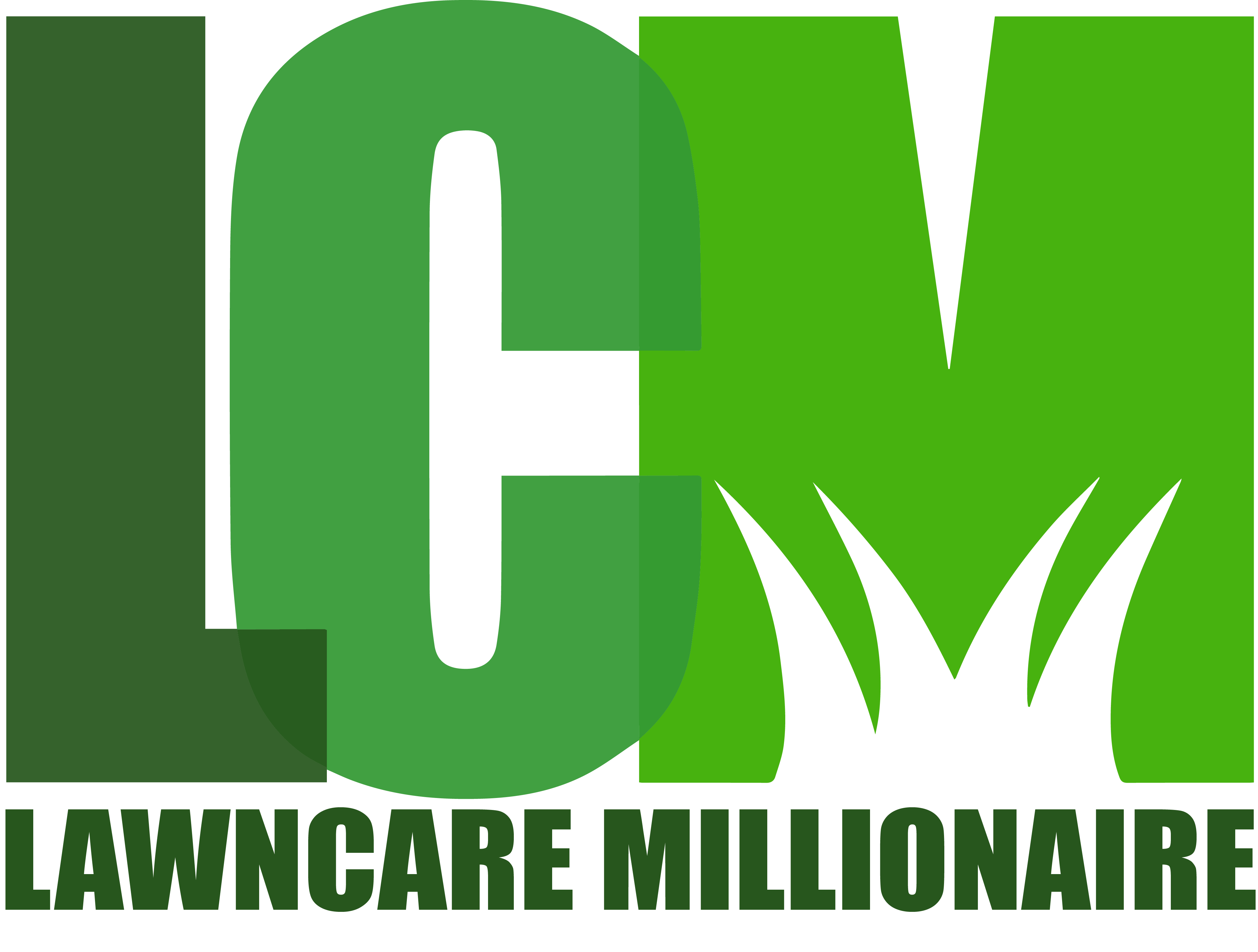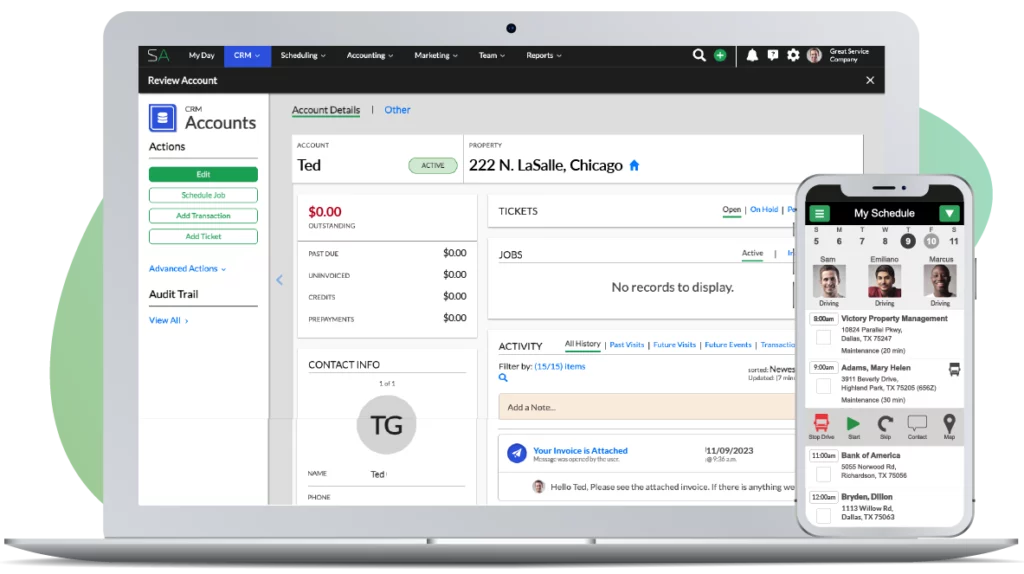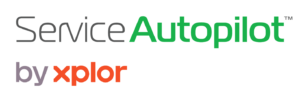Jonathan:
I’ve got another piece of wisdom for you from Greg Crabtree. The advice that Greg’s about to give you is the exact plan that I followed in the lawn care business and in the software business. It won’t let you live a big, huge, fancy, impressive lifestyle while you’re in this phase but what it will let you do is sleep really sound at night. You won’t have the stress, you won’t have the fear, you won’t have the worry that so many other people live through as they’re building a company. Then in the end when you satisfy everything that Greg’s talking about in this video it’s amazing how fast your financial life from a personal standpoint comes together and how dramatically it changes overnight. I hope you’ll follow this advice, almost no one does but those that do build real wealth. Enjoy.
Greg Crabtree:
If I can take the money and reinvest it back in my business to make a 50% return on investment, as long as I can keep reinvesting that money and doing that, why wouldn’t I? Where else am I going to get 50% return on anything? Certainly not in the broader stock market today and certainly not from any other source that’s legal. Realistically, if I am good at running my business I really want to focus on this reinvestment first. The reason why I want to do it first is also these reinvestments are generally tax deductible and so I’m getting … The government’s funding 40% of it anyway.
Now, I don’t want to spend a dollar to save 40 cents in tax so I still want to hold it accountable to that 50% ROI. I do want to make it the first decision of cash that comes out of my profitability. The second thing, and we do this quarterly, is having a formal rhythm where … On April 15th, to me, this really sets the stage for you. On April 15th to me the most important decision I’m discussing with you is not what you owe for last year, that should have been decided a long time ago. It is what do you owe for the first quarter of this year? That’s actually the discussion that ought to be taking place on April 15th. It should take place again on June 15th, and September 15th, and January 15th because that’s the critical element. Matter of fact, on our clients, that we do the monthly model with, we actually discuss it every month, it’s just part of the cash flow equation.
Once I know whether, and even if I don’t send it in I set it aside in a savings account to pay it in at a later date so that’s … I don’t trust any of you to not spend it so we’ve just established, hey, we’re going to highly, highly push to say we want it set aside in a savings account because it’s not your money. If you later have losses you can reach back into that savings account and pull it back into the business, that’s fine. I don’t want you to just say, “Oh yeah, I know it’s there.” You’re going to have convenient memory loss when it’s April 15th and it is time to send in the money for last year.
The second thing, once I’ve set aside my tax liability, I want to get rid of the line of credit debt. A line of credit debt is fine as long as I’m growing and I’m profitable but it tells me I’m under capitalized. The mere presence of a line of credit debt means my business is under capitalized and we do not believe in the potential success of under capitalized businesses that they’re taking too much risk. A business that has a line of credit debt is an obese business. It is a business that is eating the wrong things and it needs to be on heart medication and it’s got a potential stroke risk and all those kinds of things. That’s the best picture I can paint of being on a line of credit.
Well, let’s get our business healthy. I want to get it to where I’m eating the right stuff and I want to have a good diet and I want to not be overweight. I want to be lean, I want to be able to run a marathon. That’s what getting rid of your line of credit allows that business to do. Then once I get rid of the line of credit I keep leaving the money in the business until I have two months of operating expenses, which means my op-ex plus direct labor because I don’t get terms on direct labor and I generally don’t get terms on my operating expenses, and I don’t have anything drawn on a line of credit. This is the bright line that tells you I’m fully capitalized.
The point that I have more money than that and the line is at zero then I can make dividend distributions and I can decide … I can do other things with that outside the business. Once again, I want to remember this first one here. I don’t want to be taking, go back to my 50% CD that I offered Jonathan. When he said yes he wanted to reinvest it. I usually say, “Well, are you sure? You sure you don’t want to take that $30,000 of after tax interest that you just made and buy a car with it or take a vacation or pay off some personal credit cards and all those things that we kind of get sloppy with our personal life and we let our business be the cookie jar that we reach into to solve it.
Ultimately, I want you making a market base wage that I live off of and I don’t require anything else out of the business because that’s my whole premise. If I’ve given you a top end market base wage you shouldn’t have to be reaching into the business to fix anything in your personal life. If you want to treat your business as the cookie jar, that every time you want to pat yourself on the back and do something for your own gratification certainly you can do that. It’s not illegal, it’s just dumb because you’re giving up this. Why would I give up 50% return? Just tell me. I just have a hard time believing that.
Now, if you’re not able to produce 50% return on investment we’re going to have a different discussion. Should you be in a different business? Should you sell your business before you run it into the ground and it’s worth nothing? I’m telling you, you’re in an industry that like I said is one of the necessaries. Even in a recession, now people might not buy as much but they still need stuff done.
Jonathan:
Greg’s full of awesome advice. I hope you’ll follow everything he just said, it’s life changing. For more advice like this come meet us, come hang out with us at SA4 this year in November, we’d love to see you there. It’s the difference between running an average business and building a business that will run without you, that will build wealth, that will give you the financial backing so that whatever recession, whatever thing comes in the future you’ll be able to grow your company in spite of it. You’ll be able to keep marketing, you’ll be able to keep building the team, you’ll be able to retain the entire awesome team that you already have. In other words, you’ll grow through the next downturn. It’s advice like this and all the other things that we’re going to be talking about SA4 that will let you take market share in the next downturn. I hope you’ll be there in November. See you then.
Podcast: Play in new window | Download
Subscribe: RSS



